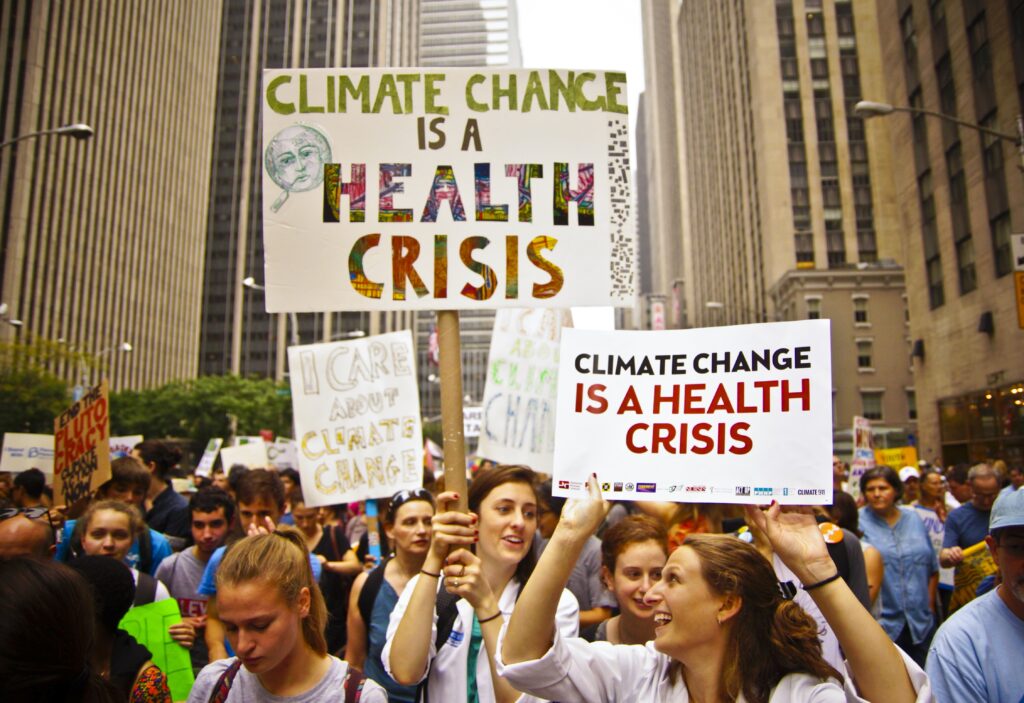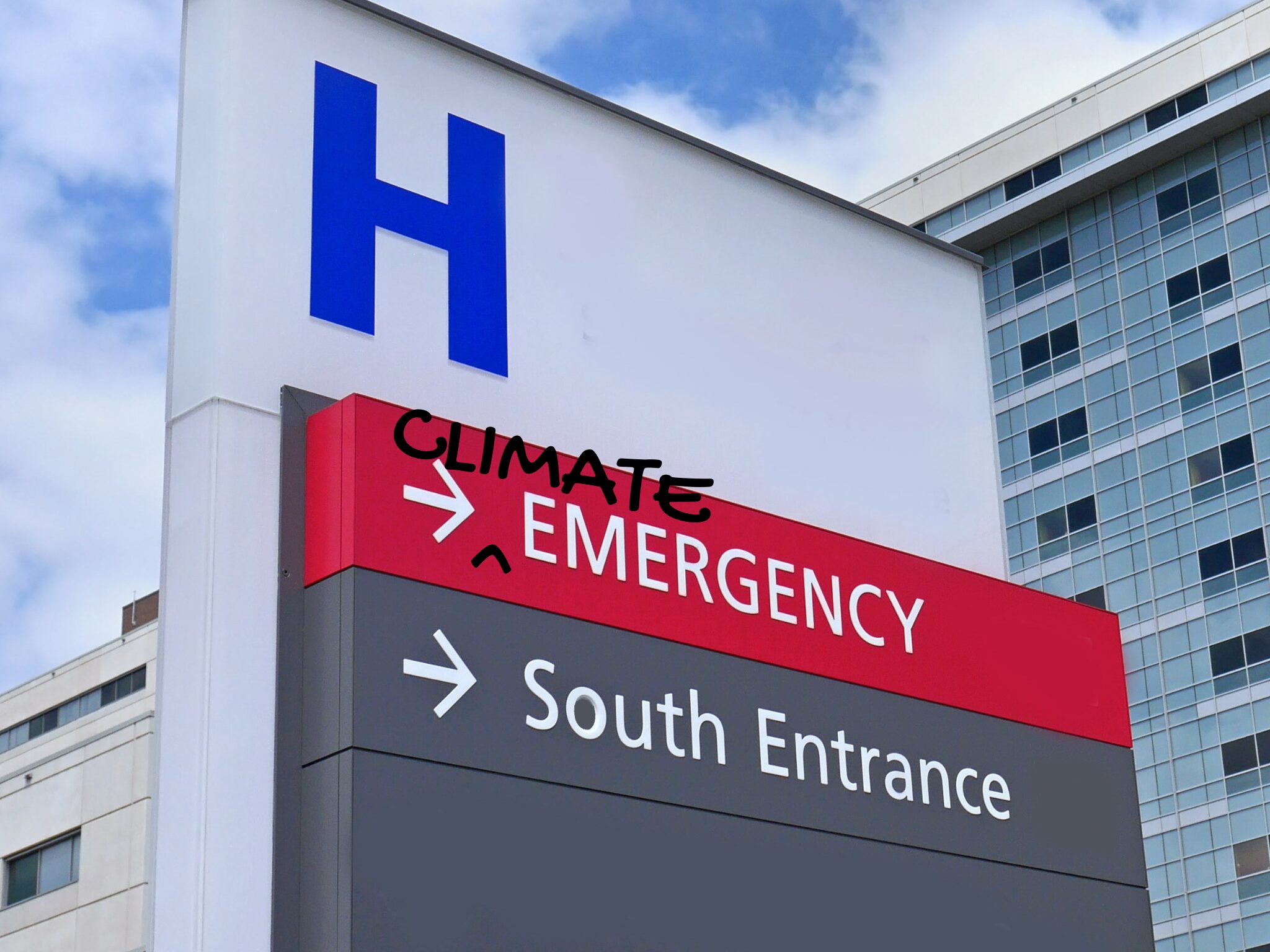WHO Backs European Network to Train Medical Students on Diseases Linked to Climate Change
5 Mins Read
A group of European universities have formed a network to train medical students on dealing with the health and disease impacts of climate change.
In Europe, 408,000 people die every year from extreme temperatures. But given the pace of climate change, if unmitigated, this death could triple by the end of the century. Heat-related mortality alone has risen by 30% in the last two decades, and this is in addition to the emerging threat of climate-induced (and climate-sensitive) infectious diseases.
Even if leaders across Europe and the world take action to limit temperature rises to 1.5°C (which is becoming increasingly unlikely), the climate crisis would still kill 450,000 people in the continent every year. Extreme weather and air pollution are also exacerbating chronic conditions like vector-borne diseases, cancer, cardiovascular disease, respiratory illnesses, and mental health ailments.
This is untenable, and solutions to treat weather-effected Europeans are sorely needed. That’s the basis of the European Network on Climate & Health Education (ENCHE), a network of 25 universities that aims to equip medical students with the knowledge and skills to respond to the impact of climate change on human health, and deliver sustainable healthcare.
To treat conditions brought on or worsened by global heating and pollution – like heatstroke, malaria, dengue, asthma, and diabetes, among others – the network will help integrate climate and health teaching into the courses of universities from the UK, Italy, France, Portugal, Switzerland and more, reaching over 10,000 students in the first three years.
The effort is spearheaded by the University of Glasgow and supported by the World Health Organization (WHO), along with members of the public-private Sustainable Markets Initiative Health Systems Task Force, which include private pharma and healthcare giants like Novo Nordisk, Bupa, AstraZeneca, and Roche, among others.
Why the healthcare sector needs climate education
The WHO suggests that 99% of the world breathes polluted air, and seven million people die from air pollution every year. It is vulnerable populations – children, seniors, marginalised communities, people with pre-existing health conditions, low-income households, and women – that disproportionately bear the brunt of the crisis.
The richest 10% in the world – most of the middle classes in developed countries that earn over $40,000 a year – cause up to 40 times more emissions than the poorest 10%. According to the UN, 91% of all deaths related to extreme weather occur in developing countries.
Reserach by the World Economic Forum has revealed that unabated climate change could cause 14.5 million additional deaths by 2050, while raking up an extra $1.1T in economic costs to the global healthcare system. Moreover, the climate impact on healthcare infrastructure would undermine people’s access to care globally.
One estimate goes even further, suggesting that if the world reaches 2°C by 2100 – a scenario that is very likely as things stand – it could lead to one billion deaths, with the richest humans mainly responsible for the deaths of mostly low-income populations.
Current medical education doesn’t include consistent teaching on the nexus of climate and health, with training often relying on the engagement of student groups and knowledge of faculty members, ENCHE explains. The network is looking to provide “best-in-class knowledge and skills training” across undergraduate programmes to address climate-linked health threats.
It will become a regional hub of the Global Consortium on Climate and Health Education (GCCHE) at Columbia University Mailman School of Public Health, which will offer expertise and promote transatlantic collaboration on the topic while hoping to inspire other institutions to join the network.
Glasgow University’s Prof Iain McInnes, who is the co-chair of ENCHE, said: “As educators, it is our responsibility to ensure that the next generation of doctors, health professionals and medical leaders have the skills they need to face these challenges and can provide patients with the best care possible. It is my hope that many more institutions will join this network.”
A greener healthcare system will benefit public and planetary health

The healthcare system is responsible for around 5% of global emissions – that’s twice more than the aviation sector, and higher than the dairy industry. That share is higher in more vulnerable countries.
GCCHE says there’s increasing interest from medical students and faculty for sustainability to be included in the curricula, so the network can help educate the next generation of healthcare professionals and develop a “pipeline of future ambassadors” for eco-friendly medical practice.
“The students at the medical schools which have joined this network are the health leaders of the future. With the knowledge to treat the effects of the climate crisis and deliver more sustainable healthcare, they can positively impact thousands of patients, their health systems and the planet,” noted Paul Hudson, CEO of Sanofi, which is part of the Health Systems Task Force.
“The health impacts of climate change are not hypothetical threats in the future; they are right here, and right now,” said WHO director-general Tedros Ghebreyesus. “I welcome the public-private collaboration that has helped galvanise this new educational network, and I hope it will inspire action in other countries and regions around the world.”
Students will be educated on antimicrobial resistance and green prescriptions, and shown how changes in condition management can positively impact the environment. For example, keeping asthma controlled would benefit not only public health, but also the planet, since it would reduce the need for inhalers, which release greenhouse gases. In this case, where applicable, some patients may be able to switch to dry powder inhalers, which are linked with lower emissions.
ENCHE will run an online hub alongside webinars and engagements to boost the network of experts and medical educators, and aims to embed sustainability content in at least three national curricula in Europe, so that climate change could become a mandatory part of doctors’ education. The network may also expand beyond Europe to support the healthcare sector’s climate resilience on a global scale.
“Climate change will impact all of us, everywhere but not equally and not in the same way,” said GCCHE managing director Prof Cecilia Sorenson. “Regional networks are necessary to help health professionals prevent and respond to climate and health challenges which are unique to the communities where they practice while taking into account unique cultural and societal issues.”



